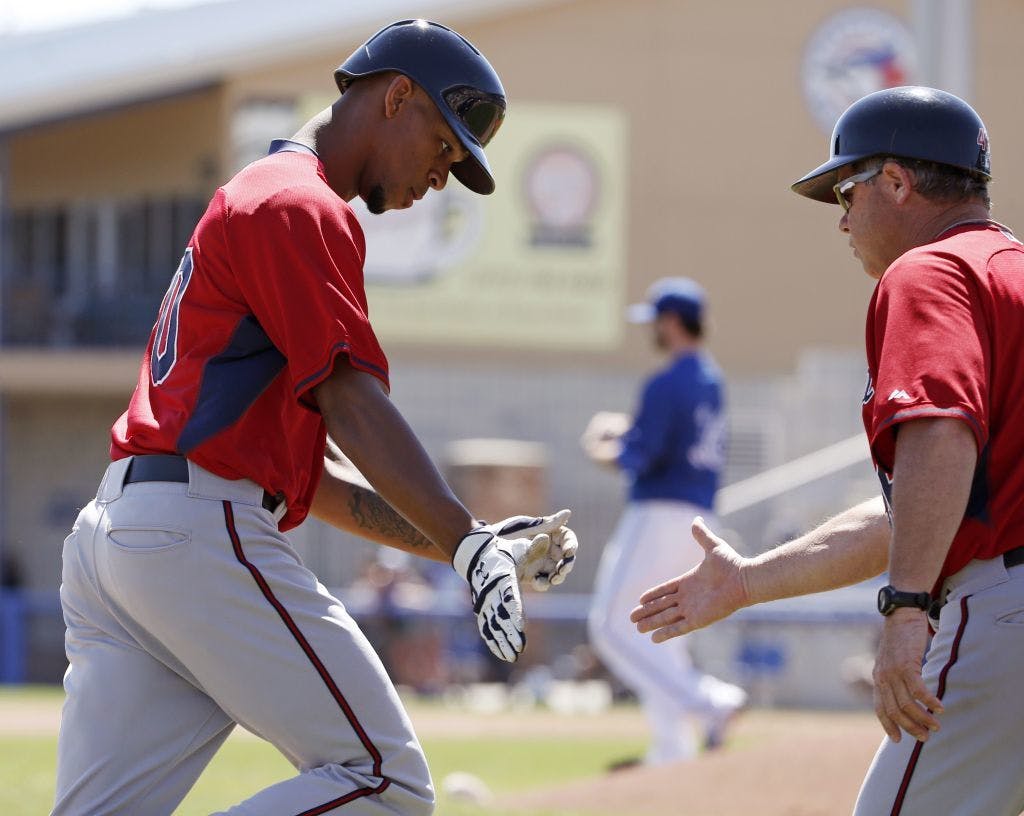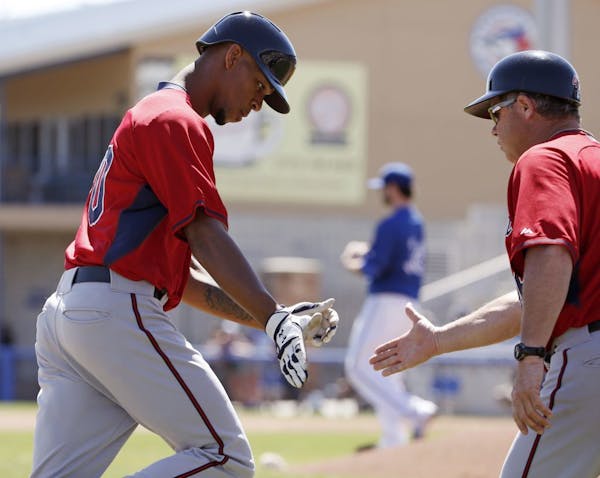FORT MYERS, FLA. – Phil Hughes is not comfortable with the notion that he needed to get out of New York to revive his career.
"I don't know," the righthander said as he relaxed in front of his stall at Hammond Stadium last week. "Anybody who has been in this game long enough, you have a little bit of an ego and some pride in the fact that you believe you can be successful anywhere."
Especially in the Big Apple, because if you can make it there, you'll make it … you get the idea. Hughes was 56-50 with a 4.54 ERA with the Yankees. He won 18 games in 2010. He has pitched well in playoff games. He made it there.
But the former highly touted prospect floundered last season, going 4-14 overall — and 1-10 at home. Grounds for expulsion from New York.
When one door closes, another one opens. And the Twins were eager to provide an opportunity for Hughes to turn things around. Actually, they expect him to turn things around, since they signed him to a three-year, $24 million contract, the length of the deal raising a few eyebrows around the league. The Twins believe that a move to a more pitcher-friendly ballpark and a different clubhouse atmosphere will precipitate a turnaround.
"I had some good times in New York," Hughes said, "and last year was just a downward spiral and it was a situation I could not rebound from. Who knows? If I had not had a bad year last year, I may not be here. I think, pardon the cliché, it happened for a reason. Maybe it was meant to struggle last so I could be in this situation and have some success here."
Was it fate?
Maybe Hughes was destined to joined the Twins.
He was drafted 22nd overall in 2004 — one spot before the Twins selected Glen Perkins. Perkins and Hughes first met in 2006 at a league-sponsored rookie career development seminar in Washington, D.C.
"We hit it off pretty good," Perkins said. "He was a guy whose career I've followed."
The Twins tried to land Hughes as the cornerstone of a deal that would send Johan Santana to the Yankees but eventually traded Santana to the Mets instead.
The final Phil Hughes Movement goes back to last May, when a certain Twins closer sized him up as the perfect piece for a rebuilding team.
"I think I told [pitching coach] Rick Anderson, 'I think this is a guy who would be a good fit for us,' " Perkins said. "I started telling other guys on the team and started talking about him. I tried to have conversations with guys just to get the idea of signing him in people's heads."
Talk continued through the season, as Hughes compiled that sickly 4-14 record.
"Some of us would talk about it in the outfield during batting practice," lefthander Brian Duensing said. "We thought maybe if he got out of New York and got some of that pressure taken off of him, he would do well. I know he threw well against us."
The front office felt the same way and laid a three-year offer in front of Hughes. The Twins were very comfortable offering three years because of Hughes' body of work, that includes an 18-8 record and 4.19 ERA in 2010 and 16-13 record and 4.23 ERA in 2012.
Also important: his age. Hughes is 27, hitting free agency relatively young because he made his Yankees debut at age 20.
"It's different if a guy is 32, 33 years old and you are signing him coming off a down year," Perkins said. " But a guy who is coming off of a down year as a 26-year-old, you don't see to many guys playing their first free-agent season as a 27-year-old."
Twins assistant General Manager Rob Antony knows the contract shows just strongly the Twins feel about Hughes rediscovering his winning ways.
"We believed he was going to be a good pitcher," Antony said. "and we weren't interested in signing him for one year where he could prove he could pitch and then go sign somewhere else next year."
Fly-ball pitcher
There were 142 home runs hit in Target Field last season, 74 by opponents. That was 1.75 a game, the second-fewest in the American League.
There were 167 homers hit in Yankee Stadium last season, the sixth most in the AL. Righthander Mike Pelfrey has joked, "Sometimes you have to hit it twice to get it out of Target Field."
Target Field might be a better fit for Hughes, historically a fly-ball pitcher. But he knows he has to work on his game, too. He has decided to junk his slider and work on sharpening his curveball and cut fastball. Beware: Hughes is a professional tinkerer. A recent story on Baseball Prospectus' website counts this decision as the 10th time Hughes has activated or deactivated a pitch in his career.
Health could factor in as well. Hughes was hampered by a sore back last year during spring training and felt he never got his legs under him. He is fully healthy this spring and has looked sharp in two starts, including three scoreless innings against Toronto on Saturday in Dunedin.
"Last year I think I got caught up in making too many adjustments," Hughes said. "That wasn't me. I felt like I was constantly trying to figure something out on the fly. But right now I feel like I'm pretty close as far what I want to do going into the season. If I can command both sides of the plate with my fastball and use my curveball that is who I am. So that is what I'm trying to get back to."
Hughes warned fans of what's coming on Jan. 23 when he appeared at the Diamond Awards at Target Field and said, "Sometimes you miss bats… and sometimes it gets hit a long ways!"
The crowd roared at the self-deprecating humor, which might not go over as well in New York.
Hughes, from Mission, Viejo, Calif., also is a hockey fan, watching Anaheim Ducks games as a youth then Tampa Bay Lightning games while training with the Yankees in Tampa. Now he's looking forward to checking out Wild games.
Just one more reason to believe he will be a good fit with his new club.
"I think all the things they look for in a player, when they bring guys into the clubhouse, he's met all those qualifications," Perkins said. "We've been here for 3½ weeks and he fits in here like he's been here for six years."

Can the Vikings find long-term running back solution in the draft?

Wild's season had roster issues; expect more of the same next year

'Tension and pressure' mount as Twins lose on walk-off homer
![Naz Reid (11) of the Minnesota Timberwolves Wednesday, March 27, 2024, at Target Center in Minneapolis, Minn. ] CARLOS GONZALEZ • carlos.gonzalez@](https://arc.stimg.co/startribunemedia/TGYNEKQCYNH5VEPCXSJODRMDDM.jpg?h=91&w=145&fit=crop&bg=999&crop=faces)
Naz Reid's path to breakout stardom featured mentor unlike any other


